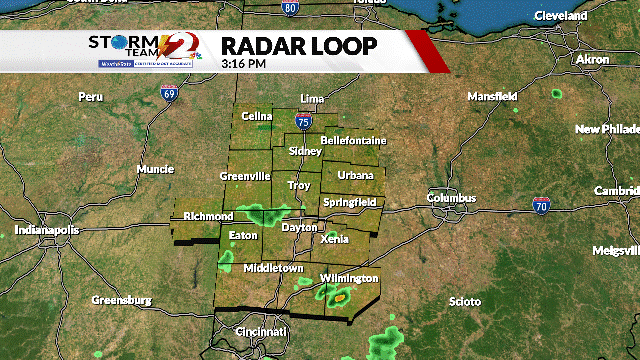DAYTON, Ohio (WDTN) – The CDC has released new information that 6 women out of the 7 million people who’ve received Johnson & Johnson’s COVID-19 vaccine have suffered from severe blood clots.
“Cerebral venous sinus thrombosis, that’s up in the brain. Typically headache would be the most common symptom. Potentially some reduced level of consciousness,” said Dr. Jeffrey Weinstein, patient safety officer at Kettering Health Network. “They’re also mentioning other symptoms of blood clots, leg swelling, shortness of breath, abdominal pain.”
The ages of the six women ranged from 18 to 43, which has unsettled some young people who’ve received the single dose vaccine.
“I was kind of surprised, because honestly, I didn’t think it would cause clots or anything like that,” said Sydney Eldridge, a junior at the University of Dayton.
Eldridge had already received the vaccine nearly a week before news of blood clotting was released and suffered flu like symptoms a few days after.
Kiersten Duffy, a senior at UD, said she hasn’t been vaccinated yet, and even before the news she wasn’t planning on getting Johnson & Johnson’s.
“I had heard that those had more side effects than say the Pfizer did … so I was waiting to see if I could easily find a Pfizer vaccine that worked in my schedule,” said Duffy.
Weinstein says he doesn’t think the Pfizer or Moderna vaccines will produce the blood clots that’ve now been reported in Johnson & Johnson or AstraZeneca. He reminds people that these are very rare events.
Currently, more studies are being done on the one shot vaccine to determine if it was the main factor which caused blood clots in these women. They all got blood clots in within 14 days of receiving the vaccine.
“It’s very important that we determine if there was anything in those six individuals that put them at a higher risk, or if it was related to the blood clots at all,” said Dr. Roberto Colon, chief medical officer at Miami Valley Hospital.
Colon says he doesn’t want people who’ve already received the Johnson & Johnson vaccine to be afraid.
“You don’t need to feel like you’re in danger. You’re not in imminent risk. This is something very cautious,” said Colon.


















































